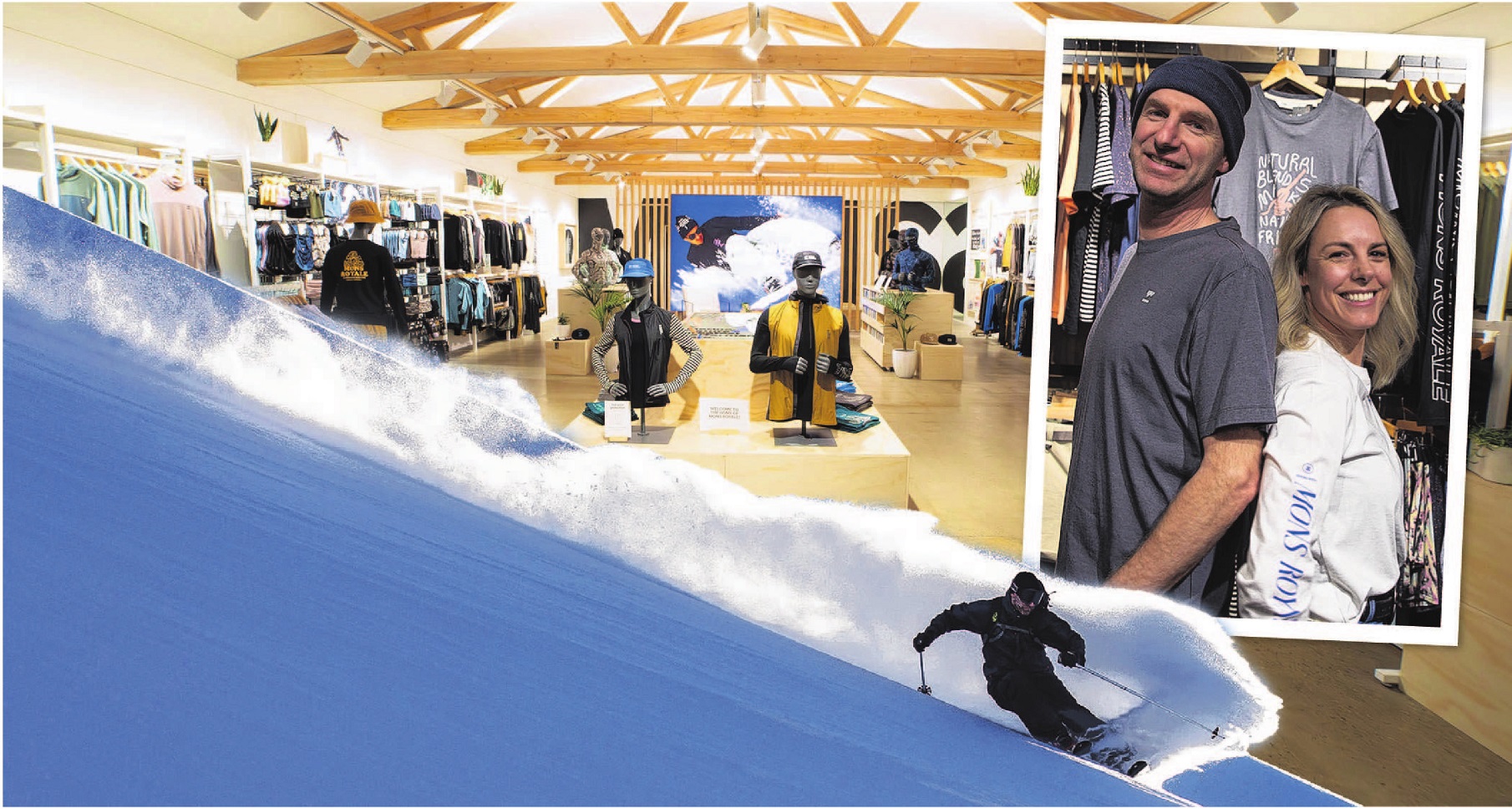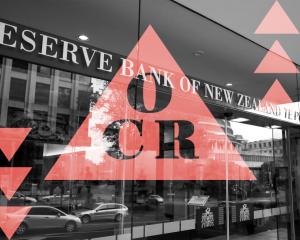
"We're really just getting started."
Merino clothing brand Mons Royale might be celebrating its 15th anniversary this year but co-founder and chief executive Hamish Acland muses that it feels like he has only just done his apprenticeship.
During that period, so much has changed but what Mr Acland and his wife and creative director Hannah have never deviated from has been forging their own path in unmistakable Mons style.
Headquarters for Mons Royale is Wānaka, which is also home to the Aclands and their children; there are also offices in two other mountain towns — Innsbruck in Austria, and Squamish, on the way to the Canadian ski resort town of Whistler.
Innsbruck is coincidentally where Mr Acland once slept in a park as a 20-something-year-old ski bum. A former professional freeride skier, he spent 10 years living out of a ski bag and was ranked fifth on the global freeride world tour in 2005.
For his post-ski career, he deliberated on what a brand would be if he was to launch one. Keen to remain in the action and adventure space, he saw a gap in the market for multifunctional layering; synthetic offerings were bright, colourful and youthful but not functional, and the merino offerings were functional but had no style.
So he looked at creating a technical merino base layer that had style and energy that connected to that culture he was part of. Having been joined by his now wife, they launched Mons Royale in 2009.
The couple both come from high country farming families; Mr Acland grew up on Mount Somers Station in Canterbury, while Mrs Acland (nee Aubrey) came from Dalrachney Station in the Lindis Pass. They had an affinity for merino wool and the mountains that it was grown in.
Mons Royale was never about competing with other New Zealand brands such as Icebreaker, Mr Acland said.
"We believed we were going to make our own way," Mr Acland recalled.
"We needed to do that overseas and not get into some sort of ‘who’s doing what in New Zealand’."
The distinctive brand, which is committed to using natural fibres, is now stocked in more than 1000 retail stores globally. There are just over 30 staff in the Wānaka HQ and about 11 in the international offices.
Retail is a new addition; it has about five retail stores of its own and is officially opening a new store in Wānaka this month to mark the 15th anniversary. To be able to create a physical manifestation of the brand was "really cool", Mr Acland said.
Learning the retail game was something he and his wife were loving and he was looking forward to doing that overseas as well, sharing the Mons story with visitors, including those not familiar with the brand, Mr Acland said.
"They are always blown away with the connection all the way back to the farm, performance of wool and energy of the brand," he said.
While Mons was succeeding globally, it was "tiny on the global stage", competing every day against brands 10 times its size.
Mr Acland acknowledged the company had probably flown somewhat under the radar in New Zealand, partly because it was so committed to succeeding overseas.
They also had not been particularly good at talking about themselves — "we’ve wanted to put our heads down and do the work and let the actions do the talking, so to speak" — and they were proud of the team culture that had been created and the people that Mons had attracted.
Apparel was an extremely difficult sector to succeed in and, to succeed globally, a brand needed to stand for something. For Mons, it had been its distinctiveness, energy and performance — dressing people to go into the outdoors where its garments had to perform for skiing and mountainbiking.
"Over time, we’ve just built up that fan base and they want to keep coming back to the brand because they know what you stand for," he said.
Mons faced the same challenges as other businesses against the recent backdrop of Covid-19, the economic downturn and the climate crisis. But the consciousness of people was starting to change.
Talking about wool, he believed Mons was on the right side of history when it came to the fibre, Mr Acland said. People were starting to understand how inferior synthetic clothing was and how much damage it was causing.
As more consumers started to make the shift, that was energising and driving the Mons team. People were also wanting to spend more time in the outdoors.
So while Mons was not immune to challenges, he believed the brand was doing better than some others. It was also about being resilient and building more agility in the business as challenges would happen "again and again", and it was about navigating them.
He was upbeat about the future prospects for natural fibres, particularly wool, as he expected the need would only increase as awareness grew of the negative impacts of "plastic" or oil-derived clothing. Wool was nature’s performance fibre, he said.
It was the role of Mons and other brands to help drive that change, and legislative change was also needed. There was a lack of transparency and the whole notion of recycling plastic bottles into clothing was collapsing as people realised it was not a solution.
"Coca-Cola and other bottle manufacturers should be recycling bottles back into a bottle ... Putting it into clothing is just down-cycling."
One of the key barriers was not the price of wool but how cheap oil-based synthetics were, he said.
Asked how a global business could run out of a place such as Wānaka rather than a larger centre, Mr Acland said there were lots of modern tools that made it easier to work across time zones.
But the key was the team and Mons had been fortunate to have a mix of nationalities move to Wānaka to be part of the business, he said.
"I think that’s a key. We really want to be able to have these different nationalities coming in. It globalises the thinking."
He and his wife felt very fortunate they got to do something they loved, surrounded by that team — "when you’ve got that purpose, it really does give you a lot of energy" — and they also got energy off seeing those people grow.
During the 15 years, there had been various chapters of the Mons Royale story; right now, that was around opening retail stores. It was important to believe in yourself and be able to take risks, Mr Acland said.
"One of the challenges is you can go to a different stage and you have a fear of failing. Within the Mons DNA, we just have this willingness to take risk and challenge yourself. Somehow, you’ve just got to go ‘how much do we care about failure? Is it worse to live in the grey twilight in the middle?’ We’d prefer to have a go."
He and his wife felt fortunate to work together and had that shared understanding of each other’s challenges, and an understanding of how they complemented each other, as they worked together "to make really rad things happen".
There were also a lot of other advantages from working from Wānaka, including the lifestyle it afforded, particularly as their children were getting a little older and they were able to go skiing and adventuring with them.
"One challenge is to make sure you’re committing to these things as much as you are to the needs of the business — it’s at our doorstep. It makes it a lot easier than a two-hour commute from a bigger city."
As to the future of Mons? Mr Acland said it had gone through the fledgling years and established itself. Now there was an opportunity to challenge themselves in how to do things and how to really help make an impact.












